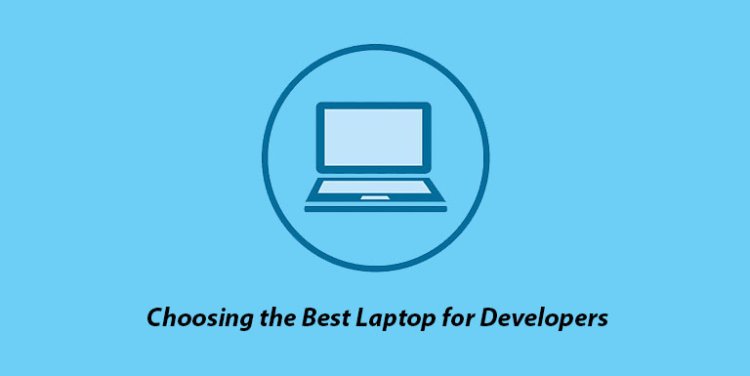Choosing the Best Laptop for Developers

In the realm of technology, a developer's laptop is more than just a device – it's a gateway to creativity, innovation, and problem-solving. Selecting the right laptop is a critical decision that can significantly impact your efficiency and productivity as a developer. In this blog, we'll dive into the key considerations that go into finding the best laptop for developers.
1. Processing Power: The Heart of Performance
For developers, processing power is paramount. Opt for a laptop equipped with a robust processor, ideally an Intel Core i7 or an AMD Ryzen equivalent. This ensures seamless multitasking, quick code compilation, and smooth performance even when running resource-intensive applications.
2. RAM: Fuel for Multitasking
The amount of RAM directly affects your laptop's multitasking capabilities. Aim for a minimum of 16GB of RAM, which will enable you to smoothly switch between coding environments, virtual machines, and other development tools without a hitch.
3. Storage: Speed and Capacity
When it comes to storage, SSDs (Solid State Drives) are the gold standard. They offer blazing-fast data access speeds, which can significantly reduce your code compilation and application loading times. A balance of storage capacity, preferably 512GB or more, ensures you have ample room for your projects, tools, and files.
4. Display and Resolution: Visual Clarity
Developers spend long hours staring at their screens, so a high-quality display is essential. Opt for a laptop with a Full HD (1920x1080) or higher resolution display. An IPS panel provides accurate colors and wide viewing angles, making it easier to spot even the smallest details in your code.
5. Keyboard and Ergonomics: Typing Comfort
Comfortable typing is crucial for coding marathons. Look for a laptop with a responsive and well-spaced keyboard. Backlit keyboards are a bonus, allowing you to work in dimly lit environments without straining your eyes.
6. Build Quality and Portability: Developer on the Go
Choose a laptop that strikes the right balance between power and portability. A lightweight laptop with a durable build can be a game-changer, especially if you're frequently on the move or attending developer meetups.
7. Connectivity and Ports: Versatility Matters
An array of ports is essential to connect external devices and peripherals. Look for a laptop with USB Type-C, USB Type-A, HDMI, and headphone/microphone jacks. These ports ensure compatibility with various devices, from external monitors to debugging tools.
8. Battery Life: Uninterrupted Productivity
Long battery life is a boon for developers who find themselves working away from power outlets. Look for laptops that offer at least 8 hours of battery life to ensure uninterrupted coding sessions.
9. Operating System: Developer-Friendly Platforms
Choose an operating system that aligns with your development needs. Many developers prefer Linux for its open-source nature and developer-friendly environment, while macOS is favored by those in the Apple ecosystem. Windows remains a versatile option, especially for cross-platform development.
10. Budget: Balancing Features and Cost
Lastly, your budget plays a vital role in your laptop choice. While high-end laptops offer cutting-edge features, there are also budget-friendly options that provide excellent performance for coding tasks.
Finding the best laptop for developers requires careful consideration of processing power, RAM, storage, display quality, keyboard comfort, build quality, and more. By assessing your specific needs and striking a balance between performance and portability, you can make an informed decision that empowers you to excel in your coding endeavors. Remember, your laptop is more than just a tool – it's your partner in innovation and creativity
What's Your Reaction?















